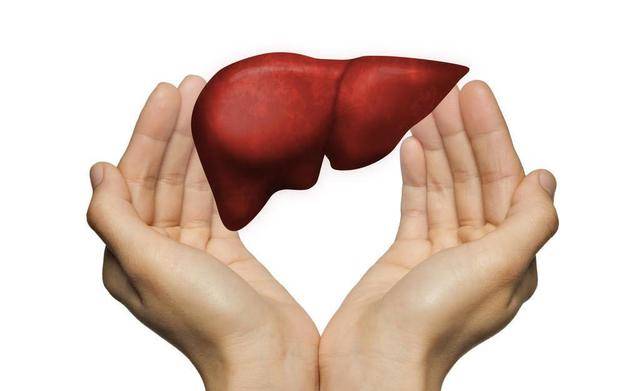Poor liver health will cause three parts of the body to become “dirty,” “no drinking 2 water, eating 3 food,” it thanks you
The liver is the largest internal organ in the human body. The liver synthesizes more than 1000 enzymes, has detoxification functions, decomposes and metabolizes large molecular nutrients, secretes bile to aid in digestion, stores blood, has immune functions, and is known as the “chemical factory” of the human body.
The saying goes, “as people age, the liver leads the way.” The liver quietly detoxifies the body, filtering the entire blood supply every 3 minutes. Despite its powerful function, the liver is also quite “fragile,” and many unhealthy habits can damage it. Therefore, in our daily lives, it is crucial to be attentive to changes in the liver, especially for middle-aged and elderly individuals who should regularly check their liver function to understand its health status in time.
If the liver is unhealthy, three parts of the body will become “dirty”
Firstly, the skin will become “dirty”
When the liver is unhealthy, the body’s metabolism processes tend to produce a large amount of toxins that the liver cannot resolve promptly or eliminate from the body efficiently. These toxins accumulate in the body, leading the skin to appear dull and lifeless.
In traditional medicine, insufficient liver blood can lead to a dull complexion. Moreover, the accumulation of liver toxins can disrupt hormone balance and endocrine function, leading to acne and pigmentation. As a result, the skin loses its previous healthy and radiant appearance.
Secondly, blood vessels and blood can easily become “dirty”
An unhealthy liver produces a significant amount of metabolic substances, such as cholesterol. Nearly 80% of the body’s cholesterol is metabolized by the liver. If excess cholesterol is not effectively utilized by the body, it accumulates in the blood, causing thickening and deposition in blood vessels, affecting blood flow and vascular function.
Excessive uric acid is another concern. If the liver produces an excess of uric acid that the kidneys cannot excrete efficiently, the uric acid content in the blood increases. Once blood uric acid levels exceed a certain range, crystals can form and accumulate in the kidneys and joints, posing health risks.
An unhealthy liver will affect the gastrointestinal tract
The liver secretes bile, which aids in digesting fats in the gastrointestinal tract. After fats enter the bloodstream, they need to be broken down by the liver into various fatty acids and cholesterol for the body’s utilization.
If the liver is unhealthy, the absorption and metabolism of fats can be disrupted. This may lead to malabsorption of fats, resulting in conditions like diarrhea. Additionally, inefficient utilization of fats can contribute to weight gain, especially abdominal obesity. Therefore, sudden weight gain, particularly abdominal obesity, signals an excess of harmful substances in the liver.
For those with poor liver health, not drinking “2 waters,” not eating “3 foods,” it will thank you
Avoiding alcohol consumption
Studies show that over 80% of alcohol entering the body needs to be metabolized by the liver, ultimately transforming into water and carbon dioxide for elimination, reducing alcohol-related harm to the body. Only a small portion of alcohol is excreted through the skin or respiratory system.
Under normal circumstances, the liver can metabolize small amounts of alcohol daily without impairment. However, excessive drinking beyond the liver’s capacity can harm it. Therefore, individuals with poor liver health must abstain from alcohol.
Avoiding chilled beverages
Chilled foods can exert strong stimuli on the body, which are generally harmful to health. Moreover, most beverages contain numerous additives and preservatives, further burdening the liver’s metabolism. Hence, it is advisable to minimize consumption of such products.
Avoiding high-fat foods
As mentioned earlier, fats are complex nutrients that require liver metabolism to be utilized by the body. Excessive consumption of high-fat foods can strain the liver. Even for individuals in good health, moderating high-fat food intake is recommended. For those with poor liver health, reducing intake of high-fat foods, such as fatty meats and fried foods, is crucial. Cooking with vegetable oils is preferable in daily meals.
Avoiding high-protein foods
Proteins are essential nutrients that, once ingested, are broken down by the liver into various amino acids for bodily use. Overconsumption of high-protein foods can overload the liver.
Although proteins are crucial for cell structure and function, they are abundant in a typical diet. For the average person, proteins are one of the three major nutrients necessary for daily consumption. Foods rich in proteins include dairy, eggs, various fish, and meat products, as well as legumes, which have high absorption rates in the body.
Individuals with poor liver health should moderate the intake of these foods and opt for sources like legumes, dairy, or eggs to supplement high-quality proteins for essential bodily functions.
Avoiding spicy and stimulating foods
Spicy, salty, and sugary foods should also be consumed in moderation. Prioritizing a diet rich in light and easily digestible foods benefits liver metabolism.
Additionally, individuals with poor liver health should cultivate good lifestyle habits, avoid late nights and excessive fatigue, engage in regular and appropriate physical activities, maintain an optimistic outlook, all of which contribute significantly to liver health.
In reality, individuals with no unhealthy habits, who enjoy regular physical activities, generally exhibit excellent liver function and fewer health concerns. Therefore, developing positive lifestyle habits is crucial at all times, rather than only focusing on liver health issues after they arise.


